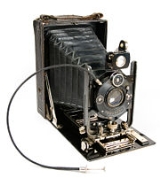
Honeywill and Stein Ltd v Larkin Brothers Ltd
Encyclopedia
Honeywill and Stein Ltd v Larkin Brothers Ltd [1934] 1 KB 191 is an English tort law
case, establishing that employers may be vicariously liable
for damage done by their independent contractors, where they carry out 'extra-hazardous' activities. Generally, employers are only vicariously liable for the torts of their employees, and not for those of independent contractors. However, a non-delegable duty may be imposed on an employer where they contract for inherently dangerous activities to be undertaken.
owned by Denman Picture Houses, requested permission to have photographs taken of the interior of the cinema. On the attendance of Larkin Brothers Ltd to take photographs, magnesium powder was ignited in order to create a flash
light, to better illuminate the cinema interior. It was argued that such practice was common in photographing the insides of buildings, despite creating intense heat and being hazardous if ignited near fabrics. The photographers were found guilty of negligence in igniting the flash just four foot from a cinema curtain, setting fire to it and causing damage of 261l, 4s, 3d. However, Honeywill and Stein Ltd, under threat of litigation from the cinema company chose to pay this balance in full. The action was therefore for the recovery of this sum, under the pretense that Honeywill and Stein Ltd could not be responsible for the tort of an independent contractor.
explained the finding of liability by stating that where an activity is contracted for, which brings with it an inherent danger, this is non-delegable:
Langton J followed a similar line of reasoning, stating that there should be two exceptions to employers not being liable for independent contractors; where a special duty is, by statute, imposed on an employer, and where chemicals or substances which are dangerous in themselves are to be used.
English tort law
English tort law concerns civil wrongs, as distinguished from criminal wrongs, in the law of England and Wales. Some wrongs are the concern of the state, and so the police can enforce the law on the wrongdoers in court – in a criminal case...
case, establishing that employers may be vicariously liable
Vicarious liability
Vicarious liability is a form of strict, secondary liability that arises under the common law doctrine of agency – respondeat superior – the responsibility of the superior for the acts of their subordinate, or, in a broader sense, the responsibility of any third party that had the "right, ability...
for damage done by their independent contractors, where they carry out 'extra-hazardous' activities. Generally, employers are only vicariously liable for the torts of their employees, and not for those of independent contractors. However, a non-delegable duty may be imposed on an employer where they contract for inherently dangerous activities to be undertaken.
Facts
Honeywill and Stein Ltd, after conducting acoustic work in a cinemaMovie theater
A movie theater, cinema, movie house, picture theater, film theater is a venue, usually a building, for viewing motion pictures ....
owned by Denman Picture Houses, requested permission to have photographs taken of the interior of the cinema. On the attendance of Larkin Brothers Ltd to take photographs, magnesium powder was ignited in order to create a flash
Flash (photography)
A flash is a device used in photography producing a flash of artificial light at a color temperature of about 5500 K to help illuminate a scene. A major purpose of a flash is to illuminate a dark scene. Other uses are capturing quickly moving objects or changing the quality of light...
light, to better illuminate the cinema interior. It was argued that such practice was common in photographing the insides of buildings, despite creating intense heat and being hazardous if ignited near fabrics. The photographers were found guilty of negligence in igniting the flash just four foot from a cinema curtain, setting fire to it and causing damage of 261l, 4s, 3d. However, Honeywill and Stein Ltd, under threat of litigation from the cinema company chose to pay this balance in full. The action was therefore for the recovery of this sum, under the pretense that Honeywill and Stein Ltd could not be responsible for the tort of an independent contractor.
Judgment
It had previously been held that employers were not liable for the torts of independent contractors, as they are for their employees. Slesser JHenry Slesser
Sir Henry Herman Slesser, KC was a barrister and Labour Party politician in the United Kingdom, and later a senior judge....
explained the finding of liability by stating that where an activity is contracted for, which brings with it an inherent danger, this is non-delegable:
Langton J followed a similar line of reasoning, stating that there should be two exceptions to employers not being liable for independent contractors; where a special duty is, by statute, imposed on an employer, and where chemicals or substances which are dangerous in themselves are to be used.

